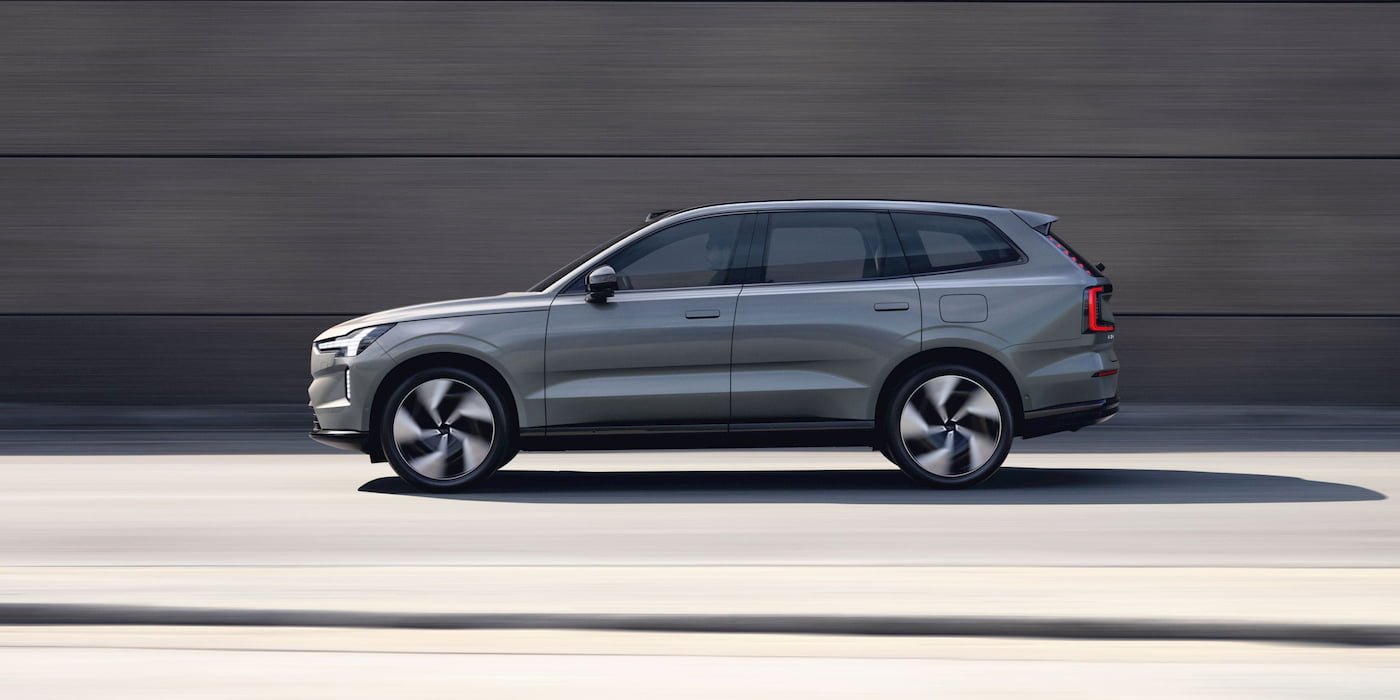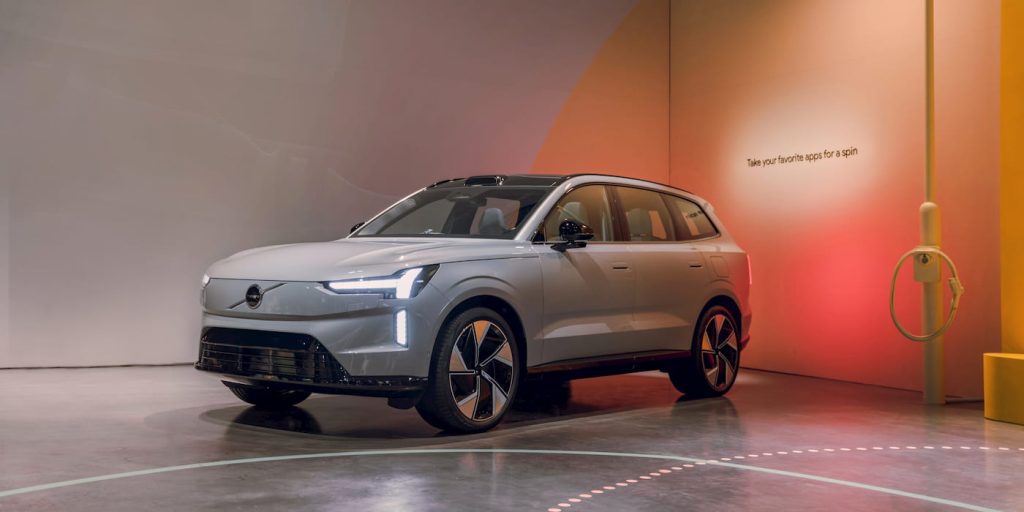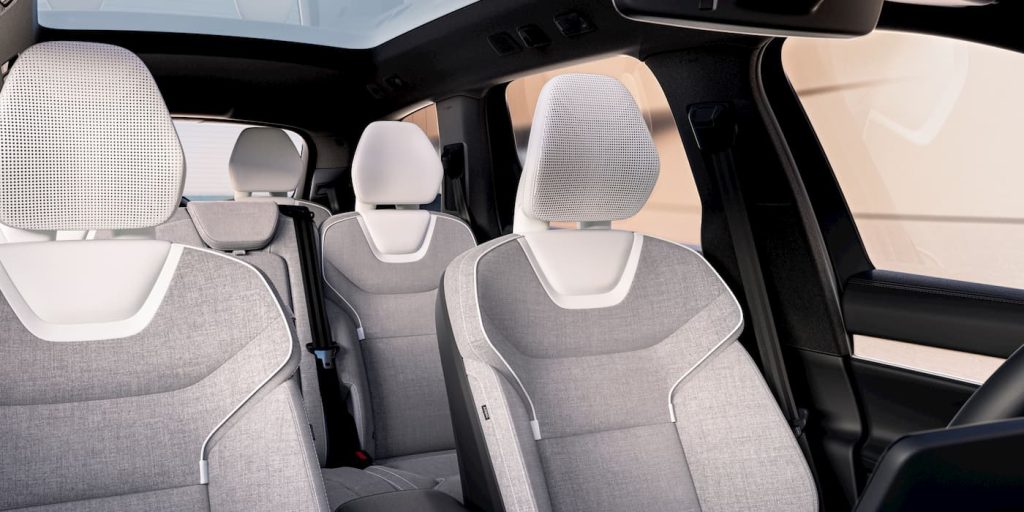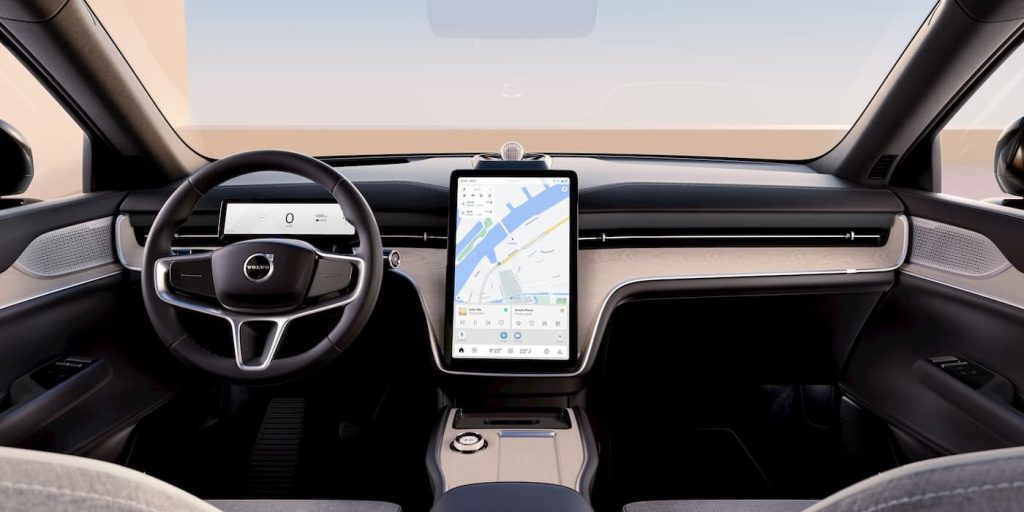
The new Volvo EX90 electric SUV will hit the market with the “world’s first EV battery passport” later this year. Volvo is launching the EV battery passport to show car buyers key info like the battery’s composition, where its materials are from, and its carbon footprint.
Volvo was one of the first legacy automakers to commit to an all-electric future by 2030. And it continues to stand by that promise today.
The automaker’s commitment has paid off so far, with new all-electric models rolling out in key markets globally. Volvo launched the EX30, its smallest and most affordable EV, last year. Despite its compact size, the EX30 is already having a significant impact.
Volvo sold over 14,500 EX30 models in the first three months of 2024, surpassing the EC40 (6,000) while closing in on the EX40 (17,400).
The EX30 pushed Volvo to a new all-time sales record in March, as it’s already living up to its promise of being a profitable growth driver. Volvo will sell the EX30 in over 90 countries by the end of the year.
Volvo is also planning to begin production of its flagship three-row EX90 electric SUV soon. After delaying it last year, Volvo said EX90 production is expected to start in the first half of 2024.

Volvo EX90 to include ‘world’s first’ EV battery passport
Volvo is launching “the world’s first EV battery passport” set to debut on the new EX90, the automaker told Reuters Tuesday.
The solution was developed by Volvo and UK startup Circulor over the past five years. Using blockchain technology, it will show buyers information about the vehicle’s battery, such as its composition, where its materials are from, its recycled content, and its carbon footprint.
Battery passports will be mandatory for new electric cars sold in Europe starting in February 2027. John Helveston, an assistant professor of engineering and systems management at George Washington University, told Electrek:
“Battery passports are an important development for consumers because they will track the state of the vehicle’s battery health over time as the vehicle is charged and discharged. This is especially important for buyers in the used car market who otherwise have no information about battery health. Mileage, for example, doesn’t fully reflect battery health – what matters much more is how the battery was cycled over its life (e.g. slow or fast, how “deep”, etc.). Future customers will be able to learn much more about the vehicle they’re buying from battery passports.”
Volvo is getting ahead of the pack, as Vanessa Butani, the company’s head of global sustainability, told Reuters.
“It’s really important for us to be a pioneer and a leader,” Butani said. By launching it three years ahead of the deadline, Volvo aims to be more transparent with buyers as it moves toward an all-EV future.

To view key battery info, owners can simply scan a QR code on the inside of the driver’s side door.
Although the EX90 will be the first to feature the new tech, it will eventually be included on all Volvo electric cars.

Volvo plans to pass a more advanced version to regulators that will include real-time EV battery health information. According to Circulor CEO Douglas Johnson-Poensgen, it will cost around $10 per EV for 15 years.
Volvo’s new EX90 will start at $77,000 in the US when it launches this year. The luxury three-row electric SUV will be available in Twin Motor and Twin Motor Performance trims.
2025 Volvo EX90 trim | Starting price (*excluding destination) |
| Twin Motor Plus 7-seater | $76,695 |
| Twin Motor Plus 6-seater | $77,195 |
| Twin Motor Ultra 7-seater | $81,045 |
| Twin Motor Ultra 6-seater | $81,545 |
| Performance Plus 7-seater | $81,695 |
| Performance Plus 6-seater | $82,195 |
| Performance Ultra 7-seater | $86,045 |
| Performance Ultra 6-seater | $86,545 |
The AWD Twin Motor version packs 402 hp and 568 lb-ft of torque, while the Performance includes 496 hp and 671 lb-ft of torque.
Both EX90 variants are powered by a 111 KWh battery with up to 300 miles range. Buyers will be able to choose from either six-or seven-seat layouts.
Inside, the EX90 features Volvo’s new 14.5″ infotainment with Android Auto and Apple CarPlay support. You can reserve your EX90 on Volvo’s website today.
Update 6/5/24: Volvo begins EX90 production in South Carolina (read more here).
Electrek’s Take
Although Volvo is launching the “world first” EV battery passport, other automakers have released proof-of-concepts.
Tesla and Audi were among the first automakers to participate in the Global Battery Alliances (GBAs) EV battery passport proof of concept last year.
Tesla showed one for cobalt on a long-range battery pack built for China. You could see that 100% of the cobalt in the battery cells came from Glencore’s Kamoto Copper Company. Meanwhile, Audi took it a step further by showing lithium content.
Volvo’s former racing team, Polestar, another Geely-owned automaker, is also working to make its materials more traceable. Its Polestar 0 project aims to create a climate-neutral car by cutting all supply chain, manufacturing, and end-of-life emissions.
Although the US does not have EV battery passport mandates, it could follow in the EU’s footsteps. Automakers need proof of where their EV battery materials come from, so a mandate may make sense.
Helveston told Electrek:
“Battery passports could become important for proving whether an EV qualifies for subsidies under the Inflation Reduction Act, which ties the up to $7,500 tax credit for EVs to two requirements: a “Critical Mineral Requirement”, requiring a minimum percentage of the battery minerals be sourced from the US or a Free Trade Agreement country, and a “Battery Component Requirement”, requiring a minimum percentage of the battery to be manufactured in North America.”
What do you guys think should the US mandate EV battery passports? Let us know your thoughts in the comments below.
FTC: We use income earning auto affiliate links. More.



Comments